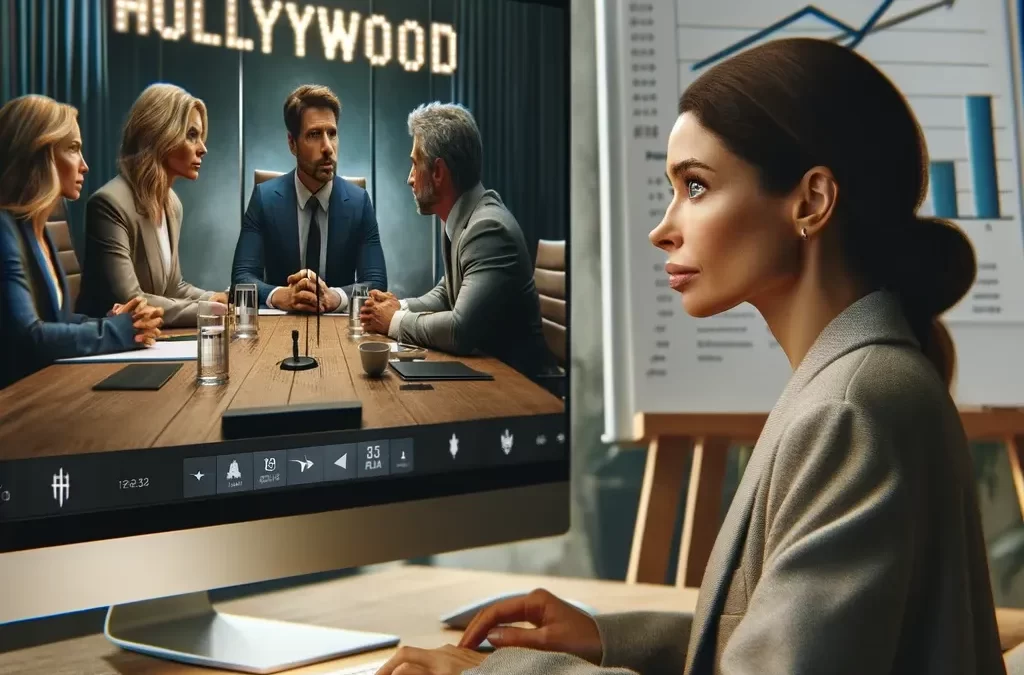It looked like just another job when a company I worked with on a series of projects — writing screenplays, loglines, and synopses and assessing whether a book would make a good film — asked me to review a woman’s book dealing with time travel into Nazi times by a boy and his dog.
They were seeking to rescue their scientist father who was blasted back there by an evil scientist seeking to steal his book of inventions. After I suggested her book could make a good film, I thought it was perfectly normal that I should ghostwrite additional material for this woman, so she could pitch her film to producers and agents.
Then, I discovered this was all a scam, when the woman had trouble paying the company for my writing. Why? When I spoke to her, she explained that the payment platforms wouldn’t accept payments to the company, since they thought it was involved in fraudulent activity. So now the company wanted her to pay me, and then I should transmit most of that to the company, after taking about 20% for my work. But I resisted doing that, since it seemed like money laundering if I sent more than what might be a usual 20–25% commission.
Their request should have been a red flag, but I tried to work out an arrangement with the company where I could apply about 60% of the payment to future work. Then, in the middle of these negotiations when I again spoke to the woman about payment arrangements, I discovered the diabolical scheme that had trapped her. Essentially, she had been paying 5 to 6 marked up fees for what I wrote plus over $10,000 for a marketing campaign. Now she needed even more material for a video conference to sign an $80,000 deal for her script with the CEO of a major company, New Line Cinema.
And yes, there was a real New Line — one of the biggest companies in Hollywood. But after I told a producer on the production team I worked with to produce over a dozen films, he said, “That deal sounds fishy.” So I investigated further. After all, as the producer told me, “CEOs don’t review scripts or make huge offers to unknown screenwriters.”
Then, as I discovered, the New Line CEO was phony, as was the deal. Instead, the proposed deal and video meeting with the CEO was all part of a scheme to get novice screenplay writers to pay the scammers more and more money for the kind of legitimate materials I was writing and for a marketing campaign that went nowhere, because everything about the Hollywood exec and the deal was an invention.
Once I realized that scheme, I immediately stopped working for the company, reported the scammers to the authorities, and contacted about a dozen other clients I had worked with for the company. As it turned out, they had all been scammed, losing $7000 to $35,000 before the scam ended, since they didn’t want to pay anymore for no results — or the company simply stopped communicating with them and disappeared.
I was appalled by what happened, and felt I was a victim, too, even though I earned money from the scheme, since the company used my reputation as a writer of hundreds of books and dozens of scripts, as well as a producer of over a dozen films, to lure in the clients. Thinking maybe this might help the clients feel some release from what happened and even sell their scripts, I wrote up their stories for a book about the scam, which also described how I investigated and found the truth. I included a synopsis of each person’s story to show how many of these screenplays had great potential. If only the company didn’t scam them, they might have actually gotten real deals.
But the story of the book-to-film scam didn’t end there. Instead, I was able to turn the terrible things that happened into a happy ending. The book became THE BIG CON, which was published by American Leadership Books. It features the stories of a dozen victims, plus the saga of my investigation with many twists and turns, as I tracked down information about the company and where it really was located — in the Philippines, not at their L.A. address which was just a UPS store.
Then, the book got turned into the documentary CONNED: A TRUE STORY, which features interviews with seven of the victims, who told their heart-wrenching stories. One of them even believed the opportunity to turn his book into a film was due to God’s help, a realizing he was scammed led him to not only question his faith but he had to struggle to pay his rent, since he spent almost all his savings — about $35,000 — for what he thought he needed to pay to seal the big Hollywood film deal and gain a $100,000 return. Others similarly described upheavals in their lives.
Then, for an even more magical happy ending, CONNED: A TRUE STORY got picked up by one of the largest distributors, Gravitas Ventures. It distributes over 300 new films a year, including the recently-released Netflix documentary: FILLING IN THE BLANKS. So now the film is available through Amazon at
https://www.amazon.com/Conned-True-Story-Robert-Newman/dp/B0CHB1ZYRW
The experience launched my own investigation of other scams, which turned into four more books and another documentary, CON ARTISTS REVEALED, about different kinds of scams, also released by Gravitas Ventures,. But that’s another story, which I’ll write about in another article.
For more information and to set up interviews, contact:
Karen Andrews
Media Relations
Changemakers Publishing and Writing
San Ramon, CA 94583
(925) 804–6333
changemakerspublishingandwriting.com

